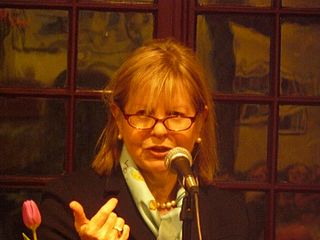A Quote by Susan Cheever
All writers have strengths and weaknesses. I am terrified of being boring, so I write short, compressed stories that sometimes don't give a reader time to think about what they have read. I struggle to slow down.
Related Quotes
I'm one of those writers who started off writing novels and came to writing short stories later, partly because I didn't have the right ideas, partly because I think that short stories are more difficult. I think learning to write short stories also made me attracted toward a paring down of the novel form.
But I am not sure it would contain any short stories. For the short story is a minor art, and it must content itself with moving, exciting and amusing the reader. ...I do not think that there is any (short story) that will give the reader that thrill, that rapture, that fruitful energy which great art can produce.
I've always loved short stories. Even before I was a writer I was reading short stories - there were certain writers where I just felt like they could do in a short story what so many writers needed a whole novel to do, and that was really inspiring to me. Alice Munro, I felt that way about from an early time. Grace Paley.
I would give them (aspiring writers) the oldest advice in the craft: Read and write. Read a lot. Read new authors and established ones, read people whose work is in the same vein as yours and those whose genre is totally different. You've heard of chain-smokers. Writers, especially beginners, need to be chain-readers. And lastly, write every day. Write about things that get under your skin and keep you up at night.
I really look up to writers who are able to write compressed, single-scene stories, where everything happens in a kitchen. But I just can't think that way. For me it would be impossible to write a story where I didn't know what someone's parents did and what their grandparents did and who they used to date.
Nobody knows what will work until they try it. Some of comics' biggest success stories in recent years have explored subjects that no one was writing about at the time - stories no one had any reason to think would succeed. My advice? Write what you want to read. You'll have more fun doing it - and if all else fails, you'll always have at least one loyal reader.
I read continually and don't understand writers who say they don't read while working on a book. For a start, a book takes me about two years to write, so there's no way I am depriving myself of reading during that time. Another thing is that reading other writers is continually inspiring - reading great writers reminds you how hard you have to work.
I think that comes with a collaboration with the writers. I think that we get cast in edgier roles because we are a little more offbeat, so people - as we get to know the writers, and as the writers get to know us, they start to write around us more, and that's why I think the pilot is not always the best way to get to experience a new television show, because we're fitting ourselves into these characters. Whereas as the show evolves, they're writing the characters for us and for our strengths and weaknesses.

































